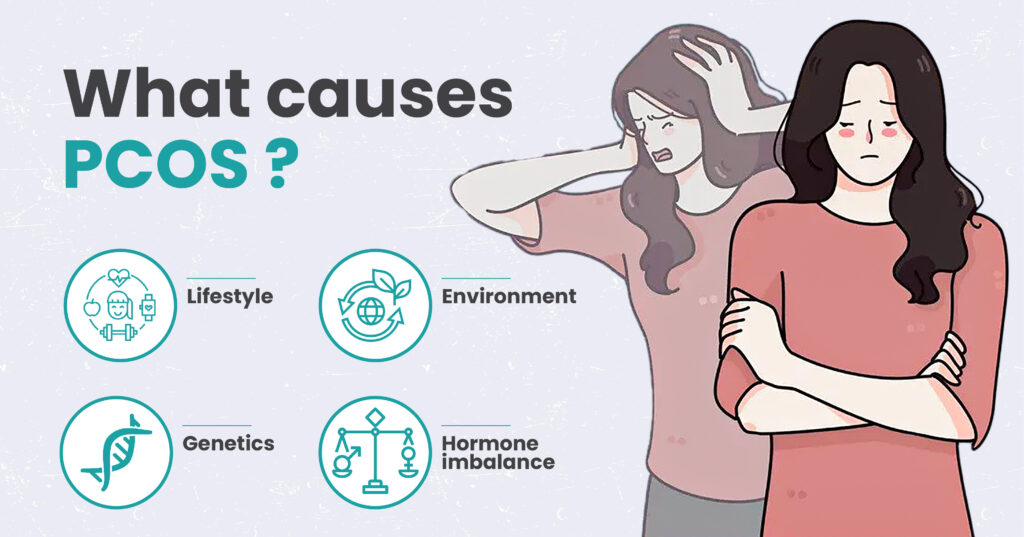
2024-07-01T05:53:43
Polycystic Ovary Syndrome (PCOS), also known as Polycystic Ovarian Disease (PCOD), is a hormonal disorder common among women of reproductive age. The exact cause of PCOS is not well understood, but several factors are believed to contribute to its development. These include: 1. Genetic Factors Family History: PCOS tends to run in families, suggesting a genetic predisposition. If a woman's mother or sister has PCOS, her risk of developing the condition is higher. 2. Hormonal Imbalances Excess Androgens: Women with PCOS often have elevated levels of androgens (male hormones). This hormonal imbalance can interfere with the development and release of eggs during ovulation. Insulin Resistance: Many women with PCOS have insulin resistance, where the body's cells do not respond effectively to insulin. This leads to higher insulin levels, which can increase androgen production, exacerbating symptoms of PCOS. 3. Lifestyle and Environmental Factors Diet and Obesity: While not a direct cause, a high-calorie diet and obesity can worsen insulin resistance and hormonal imbalances. Conversely, PCOS can contribute to weight gain, creating a cycle of weight and hormone issues. Sedentary Lifestyle: Lack of physical activity can also contribute to insulin resistance and weight gain, further impacting PCOS. 4. Inflammation Chronic Low-Grade Inflammation: Many women with PCOS have low-grade inflammation. Studies suggest that inflammation can stimulate polycystic ovaries to produce androgens, leading to the symptoms of PCOS. 5. Excess Insulin Hyperinsulinemia: High levels of insulin can increase androgen production, which can interfere with the ovaries' ability to ovulate. Insulin also affects other hormones and metabolic processes, contributing to PCOS symptoms. 6. Other Hormonal Disruptions LH and FSH Imbalance: In PCOS, there is often an imbalance between luteinizing hormone (LH) and follicle-stimulating hormone (FSH), which can disrupt normal ovulation. 7. Possible Role of the Gut Microbiome Gut Health: Emerging research suggests that imbalances in the gut microbiome might play a role in the development of PCOS, though this area is still being studied. To know more, consult Best Gynecologist in Malviya Nagar, Nagpur - DR. SWATI KHANDEKAR at her Aasavari Clinic. #pcodspecialistdoctor #pcodtreatment #womenspecialistdoctornearme #womensclinicnearme #gynecnearme #gynecologistnearme #gynecologistmalviyanagar #gynecologistnewsnehnagar #gynecologistkhamla

